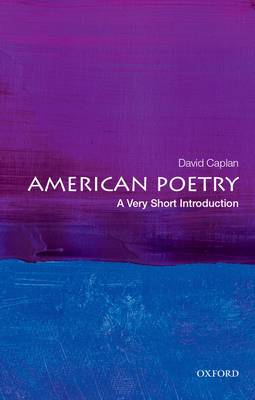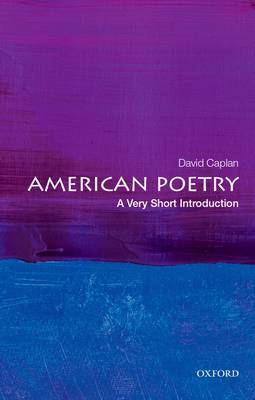
- Retrait gratuit dans votre magasin Club
- 7.000.000 titres dans notre catalogue
- Payer en toute sécurité
- Toujours un magasin près de chez vous
- Retrait gratuit dans votre magasin Club
- 7.000.0000 titres dans notre catalogue
- Payer en toute sécurité
- Toujours un magasin près de chez vous
Description
A leading critic explains what makes American poetry--a vast genre covering diverse styles, techniques, and form--distinctive. In this short and engaging volume, David Caplan proposes a new theory of American poetry. With lively writing and illuminating examples, Caplan argues that two characteristics mark the vast, contentious literature. On the one hand, several of America's major poets and critics claim that America needs a poetry equal to the country's distinctiveness. They advocate for novelty and for a break with what is perceived to be outmoded and foreign. On the other hand, American poetry welcomes techniques, styles, and traditions that originate from far beyond its borders. The force of these two competing characteristics, American poetry's emphasis on its uniqueness and its transnationalism, drives both individual accomplishment and the broader field. These two characteristic features energize American poetry, quickening its development into a great national literature that continues to inspire poets in the contemporary moment. American Poetry: A Very Short Introduction moves through history and honors the poets' artistry by paying close attention to the verse forms, meters, and styles they employ. Examples range from Anne Bradstreet, writing a century before the United States was founded, to the poets of the Black Lives Matter movement. Individual chapters consider how other major figures such as T.S. Eliot, Phillis Wheatley, Walt Whitman, Emily Dickinson, W.H. Auden, and Langston Hughes emphasize convention or idiosyncrasy, and turn to American English as an important artistic resource. This concise examination of American poetry enriches our understanding of both the literature's distinctive achievement and the place of its most important writers within it.
Spécifications
Parties prenantes
- Auteur(s) :
- Editeur:
Contenu
- Nombre de pages :
- 160
- Langue:
- Anglais
- Collection :
Caractéristiques
- EAN:
- 9780190640194
- Date de parution :
- 02-12-21
- Format:
- Livre broché
- Format numérique:
- Trade paperback (VS)
- Dimensions :
- 115 mm x 177 mm
- Poids :
- 140 g

Les avis
Nous publions uniquement les avis qui respectent les conditions requises. Consultez nos conditions pour les avis.






